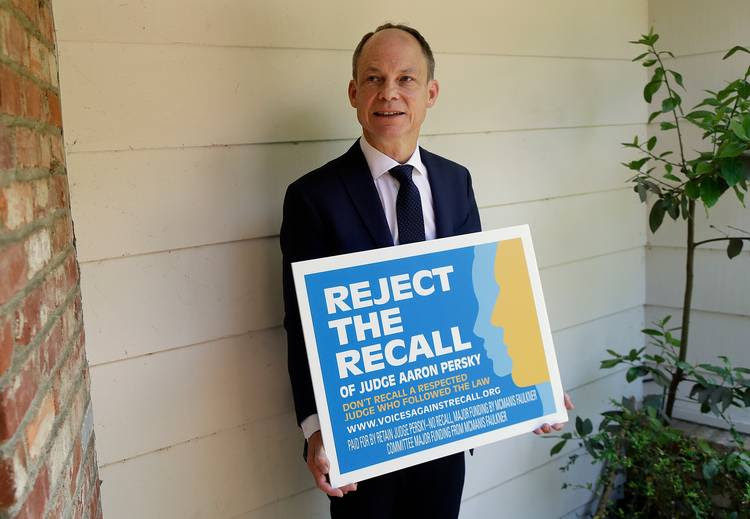Human beings have a calling to care for one another irrespective of position and station in life without discrimination. This is a core teaching of Jesus the Nazarene e.g., Luke 10:25-37 and almost all his parables allude to this interest of interests. Law would therefore ensure that it protects all. Otherwise, a cardiac surgeon would not operate on a man or woman who is said to be a “reckless smoker!” Jack Phillips in denying the gay couple the one message of love discriminated against them and rendered their day to day citizenship unenjoyable. It was wrong and discriminatory of him not to bake that cake. This is why:
The interdependence of businesses
The interdependence of businesses is a generative force that business people benefit from without bias. In a world where means of production are so interdependent and specialized, aspects that has improved quality, this means there are structures enabling all producers without discrimination to be who they are not because of individual effort but also because it takes collective input to make them what they become. The producers satisfy a demand generated by the clientele who in this case can also be known generically as consumers. It is a world where producers and consumers live in symbiotic relations. What would Jack Phillips do if he knew the vendors supplying sugar and glittery were gay? Would he switch to non-gay vendors?
Business Social Contract
A producer remains in business and in touch with the consumer because businesses are predictable and consumers continue demanding the goods from the producer. They are bound in a service social contract. This social contract blinds both the producer and consumer to gender, race, religion, ethnicity or origins of each other. What matters is the money that flows in from the consumer to the producer as a way of paying for services. The producer, in this case, Phillips is bound to provide a good or service. It is a predictable social contract that makes the business enjoyable. This predictability improves the quality of the business.
Business Stability Depends on Clientele
This business social contract in turn drives the prospect that a business will remain running and solvent. The producers are able to make business improvements, establish goodwill in the service industry and make quality products knowing that there is a guarantee they will be demanded or payments will be made in time. There is no fear of business boycotts or strikes. The business is solid and books of accounts are solvent. It is what makes a business meet city, county or state regulations. This leaves one to pursue other aspects of life happily. It is this context that makes many confident in what they do. It is what allowed Phillips, in this case, to decide which customer’s needs to address or not. It made him live by his religious convictions.
Business Principles And Not Religious Beliefs
When Jack Phillips claims he is guided by religious convictions when doing business it is as if he is saying businesses do not have the right and necessary principles and therefore have to borrow from religion. Jack Phillips has the right to do as he pleases, it is what makes him innovative and skilled. But, he comes by these skills due to day to day existence of the business and not religion.
Scrutiny is Invasive
When the veil was opened, the baker is described as an expert at baking and a devout christian. This case of the baker who refused to bake a wedding cake for a gay couple is invasive of their private life and is tied into political, cultural, social and economical power in USA. It has shown religious neutrality makes it possible to touch and remove the veil of social contract. The ruling writing for the majority, written by Justice Anthony Kennedy said the CCRC showed “hostility” to Phillips’ religious beliefs in ordering him to undergo anti-discrimination training. “The laws and the constitution can, and in some instances must, protect gay persons and gay couples in the exercise of their civil rights,” Kennedy wrote, “but religious and philosophical objections to gay marriage are protected views and in some instances protected forms of expression.” Now, it is possible to put a magnifying glass and scrutinize a client’s ethnicity, religion, orientation, gender, race, affiliation and origin in order to make a purchase or sell.
Equal Protection Before Law Supersedes Religion
It should be remembered that humans are self-interested, self-preserving and self-determining. It has been the norm that governments, courts, and social tolerance mechanisms enable those with political and economic power to tamper their desires, cravings, dreams, needs and wants not to always take precedence over those with lesser powers. This norm however, has been demystified by the case – Masterpiece Cakeshop, Ltd v. Colorado Civil Rights Commission – in which the high court was asked to balance the religious rights of the baker against the couple’s right to equal treatment under the law.
Recall Jack Phillips, is the owner of Masterpiece Cakeshop in Lakewood, Colorado. He declined to make a cake for the wedding of two gay men in 2012. It is said that Phillips told the couple that he would make a birthday cake but could not make a cake that would promote same-sex marriage due to his religious beliefs. Phillips is renowned cake maker who has no qualms making a birthday cake for anyone. A veil of social contact was opened when the consumers, couple David Mullins and Charlie Craig, made it clear that the cake was for their wedding celebration. This has opened up other ramification in the town where Jack Phillips resides. There are those who side with him and unfortunately, there are those who are using this opportunity to traumatize him.
A dispute that ended with the court siding with the baker 6 years later was sparked off. The couple represented by the ACLU of Colorado made a complaint in 2012 against Phillips. Phillips is represented by Kristen Waggoner, an attorney with the Alliance Defending Freedom, a conservative nonprofit legal organization. The case was either for or against straight religious beliefs or gay indignities. In December 2013, Judge Robert Spencer of the Colorado Office of Administrative Courts citing the Colorado Civil Rights Division (CCRD) ruled that the bakeshop had violated a Colorado law which prohibits businesses from refusing service due to a person’s sexual orientation. Subsequently, Masterpiece Cakeshop appealed the decision. In May 2014, the Colorado Civil Rights Commission decided at a public hearing that Masterpiece had violated Colorado's Anti-Discrimination Act, or CADA. The court ruled in June 2018 siding with Jack Phillips.
Conclusion
This case has opened another opportunity to scrutinize what it means to demand and provide services to consumers. It is now going to be an opportunity to scrutinize the web of doing business. Gay vendors, gay consumers be ware. Guidance on where gay rights end and religious freedom begins is needed and before this is provided by the courts or religious bodies it is going to be made at neighborhood, city, county levels. This will mean as many interpretations as the people who make them are bound to be witnessed. A carpenter will refuse to make a nuptial bed, a cobbler will refuse to provide shoes, a realtor will refuse to provide a house to be made home if it be known one is gay and they need to use the shoes to walk up the aisle, or the bed to lie in and consummate a love, or the house to be made into a home.
References
Adam Edelman. 2018. Baker who refused to make cake for gay wedding: 'I don't discriminate.’ https://www.nbcnews.com/politics/politics-news/baker-who-refused-make-cake-gay-wedding-i-don-t-n880061
David Smith and Lucia Grave. 2018. Supreme court sides with baker who refused to make gay wedding cake. https://www.theguardian.com/law/2018/jun/04/gay-cake-ruling-supreme-court-same-sex-wedding-colorado-baker-decision-latest
Jennifer Rubin. 2018. In ruling on baker's gay wedding cake case, neither side has much reason to rejoice. http://www.chicagotribune.com/news/opinion/commentary/ct-perspec-gay-wedding-cake-ruling-rubin-20180604-story.html.
Richard Wolf. 2018. Supreme Court rules on narrow grounds for baker who refused to create same-sex couple's wedding cake. https://www.usatoday.com/story/news/politics/2018/06/04/supreme-court-rules-against-gay-wedding-exemptions/1052989001/
Kaitlyn Schallhorn. 2017. Colorado baker: Death threats and hate for refusing to make gay wedding cake. http://www.foxnews.com/politics/2017/06/29/colorado-baker-describes-harassment-after-refused-to-bake-cake-for-gay-wedding.html
Kaitlyn Schallhorn. 2018. Supreme Court decides Colorado gay wedding cake case: A timeline of events. http://www.foxnews.com/us/2018/06/04/supreme-court-decides-colorado-gay-wedding-cake-case-timeline-events.html
The Economist. The Supreme Court’s artful dodge over gay wedding cakes. https://www.economist.com/united-states/2018/06/05/the-supreme-courts-artful-dodge-over-gay-wedding-cakes?cid1=cust/ddnew/email/n/n/2018065n/owned/n/n/ddnew/n/n/n/nna/Daily_Dispatchemail&etear=dailydispatch&utm_source=newsletter&utm_medium=email&utm_campaign=Daily_Dispatch&utm_term=2018065








